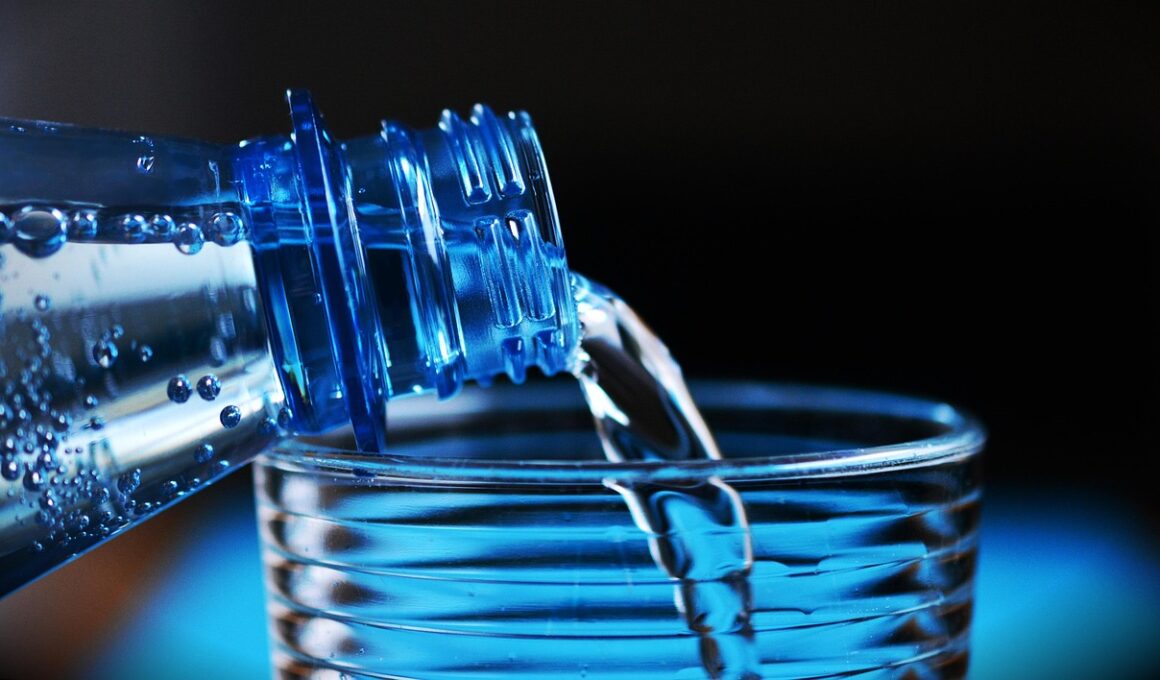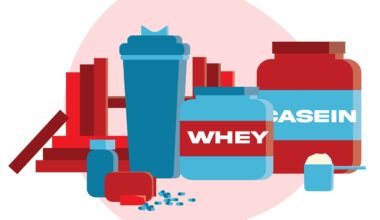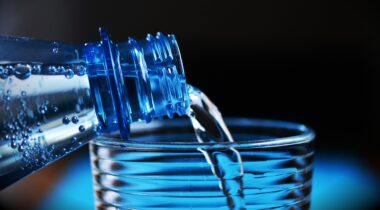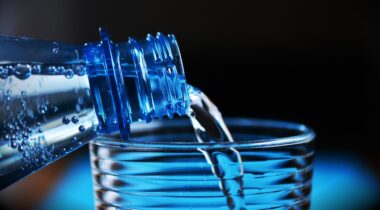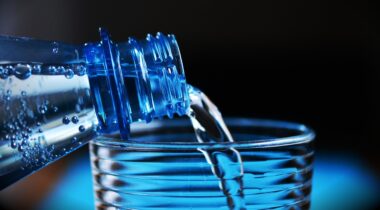Hydration and Immune Function in Endurance Athletes
Endurance athletes heavily depend on hydration strategies to perform optimally. Adequate hydration is not only vital for physical performance but also crucial for maintaining immune system function. When athletes engage in prolonged physical activity, they experience increased fluid loss through sweat and respiration. This fluid loss can compromise immune function if not properly addressed. Hydration affects nearly every physiological function in the body, including temperature regulation, cardiovascular stability, and metabolic processes. Athletes must establish hydration plans that consider factors such as exercise intensity, duration, and environmental conditions. Implementing these strategies can mitigate the risk of dehydration and its associated health complications. Moreover, dehydration has been shown to decrease the body’s ability to fight off infections, making it imperative for athletes to monitor and adjust their fluid intake accordingly. Drinking water alone may not suffice; incorporating electrolyte-rich beverages can help replenish lost minerals. Athletes should recognize the importance of hydration not only for peak performance but also for enhancing recovery and supporting immune function, which plays a key role in their overall health and athletic longevity.
Hydration Strategies During Endurance Activities
Endurance athletes must employ effective hydration strategies tailored to their unique needs. A well-structured hydration plan focuses on both pre-exercise and post-exercise fluid intake. Before engaging in endurance activities, athletes should consume adequate hydration to prepare their bodies. This could include drinking water or a sports drink that contains electrolytes. The goal is to start the activity well-hydrated. During the activity, athletes should aim to consume a specific amount of fluids at regular intervals to replace those lost through sweat. It’s best to drink about 500-800 ml per hour, depending on the exercise intensity and environmental conditions. Furthermore, after completing the endurance session, rehydration is crucial for recovery. Drinking fluids that contain an optimal balance of electrolytes will enhance the rehydration process. Timing of intake is essential; athletes should replenish fluids promptly after exercising. Ignoring these hydration strategies can lead to dehydration and endurance-related issues, including decreased performance and a compromised immune response. Thus, maintaining proper hydration throughout all phases of endurance activities can prevent potential health risks and enhance overall athletic performance.
The Role of Electrolytes in Hydration
Electrolytes play a significant role in hydration strategies for endurance athletes. Sodium, potassium, magnesium, and calcium are essential minerals that help maintain fluid balance, muscle function, and nerve signaling in the body. When athletes sweat, they not only lose water but also essential electrolytes, which can impact performance and immune function. Dehydration caused by prolonged endurance activities can diminish concentration and lead to muscle cramps or fatigue. As hydration strategies evolve, the importance of electrolyte replenishment becomes clearer. Endurance athletes should consider consuming sports drinks that contain electrolytes during training and competition. This aids in quick recovery and reduces the risk of hyponatremia, a condition resulting from low sodium levels. Additionally, including foods rich in electrolytes, such as bananas or nuts, can support overall hydration strategies. These foods can be consumed before or after training sessions to keep electrolyte levels balanced. As athletes learn to recognize their hydration needs, integrating electrolyte-rich options into their diets becomes essential for optimizing performance while ensuring immune function is not compromised.
Impact of Dehydration on Athlete Immune Function
Dehydration can significantly influence an athlete’s immune function, resulting in increased susceptibility to illness and infection. Endurance athletes are at a higher risk for these conditions, especially during critical training periods. Research has shown that when fluid levels drop, the body’s ability to mount an effective immune response diminishes. Dehydration leads to the concentration of certain hormones and inflammatory mediators, which can create an unbalanced immune environment. Moreover, the stress of intense training on the body can exacerbate these effects, leading to further decreases in immune function. Athletes might experience a higher incidence of upper respiratory infections due to dehydration-related decline in immune resilience. It becomes increasingly critical for endurance athletes to recognize these risks and prioritize hydration strategies to mitigate potential health issues. Regularly monitoring hydration levels during training and competition can help athletes take proactive measures to maintain their immune health. Understanding the relationship between hydration status and immune function allows athletes to make informed decisions about their fluid intake, ensuring better overall health and performance in their endurance pursuits.
Signs of Dehydration to Watch For
Endurance athletes should remain vigilant about the signs of dehydration, as recognizing these symptoms can lead to timely intervention. Common indicators include increased thirst, dry mouth, fatigue, dark-colored urine, and dizziness. Even mild dehydration can lead to performance declines, making it vital for athletes to address fluid loss promptly. Regularly monitoring one’s urine color can serve as a simple guideline for hydration status. Light yellow urine typically indicates adequate hydration, while darker shades suggest a need for increased fluid intake. Another warning sign is a feeling of fatigue or reduced endurance, which could signal dehydration has begun to take its toll on the body. Athletes should take breaks to hydrate during training, especially in hot conditions or longer durations. Additionally, headaches can be a sign of dehydration, often overlooked by athletes focused on their performance. It is important to develop a strong understanding of your individual hydration needs and learn to listen to your body. By identifying the signs of dehydration early on, athletes can prevent more severe issues from arising and can maintain their training and performance goals effectively.
Innovative Hydration Solutions for Athletes
As hydration technology continues to advance, endurance athletes have access to innovative solutions for maintaining optimal hydration levels. Wearable hydration monitors are emerging as practical tools that can track fluid loss during workouts. These devices provide real-time data that assists athletes in understanding their hydration needs accurately. In addition to wearable tech, hydration tablets are gaining popularity among endurance athletes. These tablets dissolve in water, providing a convenient way to add electrolytes to regular drinking water without the additional sugar found in many sports drinks. Furthermore, infusion water bottles are another option for athletes looking to enhance hydration strategies. By infusing water with fruits, herbs, or vegetables, athletes can create flavorful hydration options that encourage greater fluid intake. With these innovations, athletes can stay ahead in their hydration game. Moreover, the development of personalized hydration plans, tailored to an athlete’s specific needs and performance goals, is becoming more prevalent. As these technologies become standard practice, increasing hydration awareness among endurance athletes enhances not only performance but immune function as well, resulting in a more sustainable athletic career.
The Future of Hydration in Endurance Sports
As the landscape of endurance sports evolves, so too does our understanding of hydration strategies. Researchers continuously explore the impact of hydration on various physiological responses and how these affect performance. The future of hydration in endurance sports looks promising, with more athletes adopting data-driven approaches to fluid intake. As hydration monitoring technologies become more advanced, athletes will be able to customize their hydration strategies based on personal variables such as sweat rate, climate conditions, and individual preferences. Additionally, there is a growing trend toward functional beverages that serve to not only hydrate but also enhance overall health. These drinks may include ingredients targeting various physiological functions, such as antioxidants for recovery or probiotics for gut health. The integration of science and technology will likely lead to innovative hydration products that address the complexities of athlete hydration needs in real-time. As endurance athletes become more educated about the functions of hydration, the future of hydration strategies promises to greatly enhance not only performance outcomes but also overall health, paving the path for longer, healthier, and more successful sporting careers.
Conclusion
In summary, hydration strategies are essential for endurance athletes, not only for performance but also for maintaining immune function. Understanding the balance between water and electrolyte intake is critical for preventing dehydration-related health issues. Athletes need to establish comprehensive hydration plans encompassing pre-, during, and post-exercise hydration practices. Staying aware of dehydration signs is equally crucial to avoid detrimental effects on performance and health. As new technologies emerge, athletes must adapt and incorporate innovative solutions that suit their personal hydration needs. With a proactive approach to hydration, endurance athletes can not only enhance their performance but also ensure that their immune systems remain robust. This defensive strategy ultimately plays a vital role in maximizing their athletic potential. In turn, it fosters a culture of long-term health and resilience among athletes. By emphasizing both performance and immune function, the integration of hydration strategies will lead to sustainable athletic excellence and longevity.
